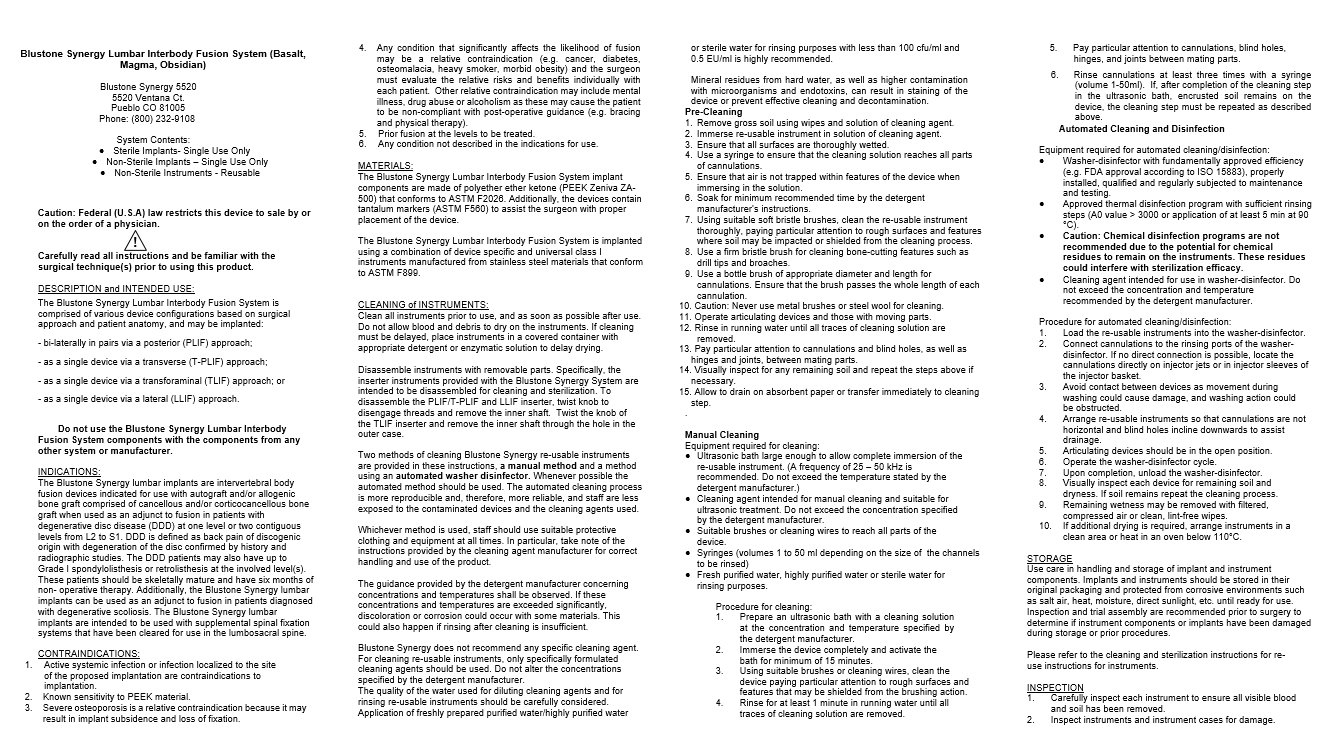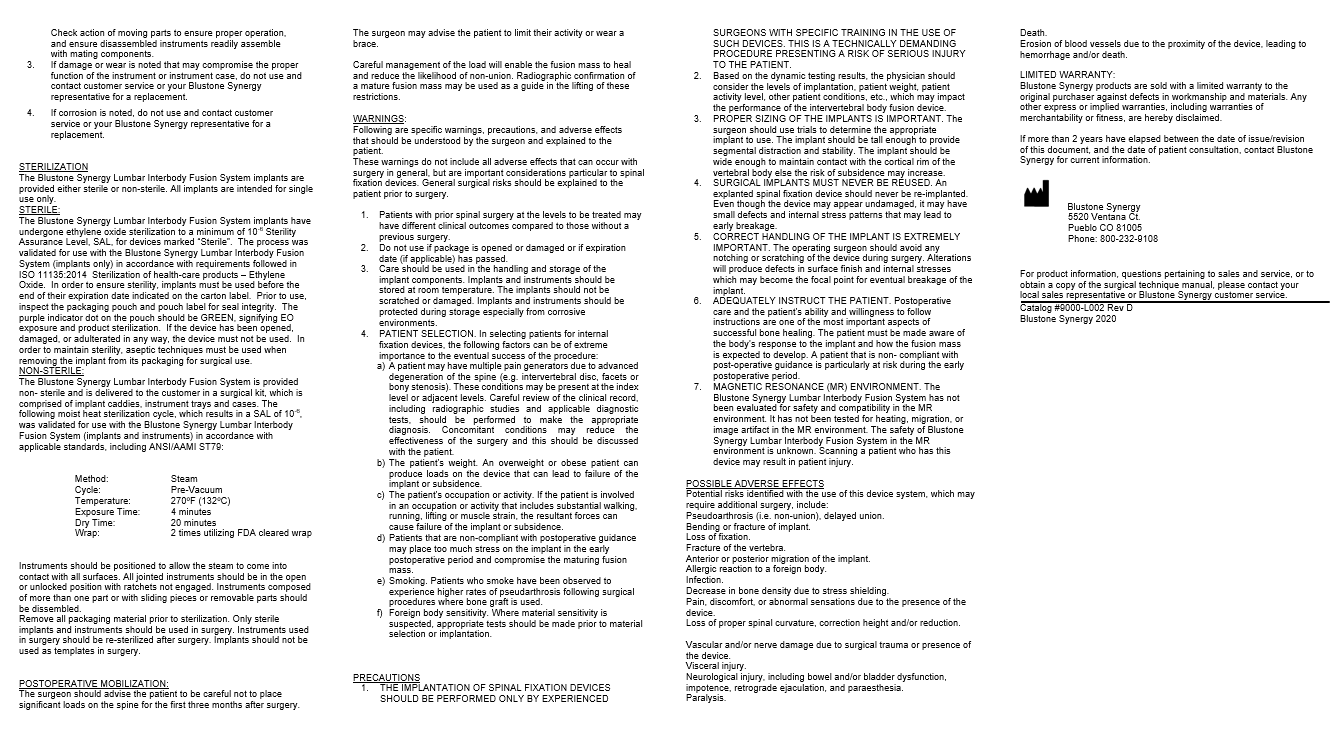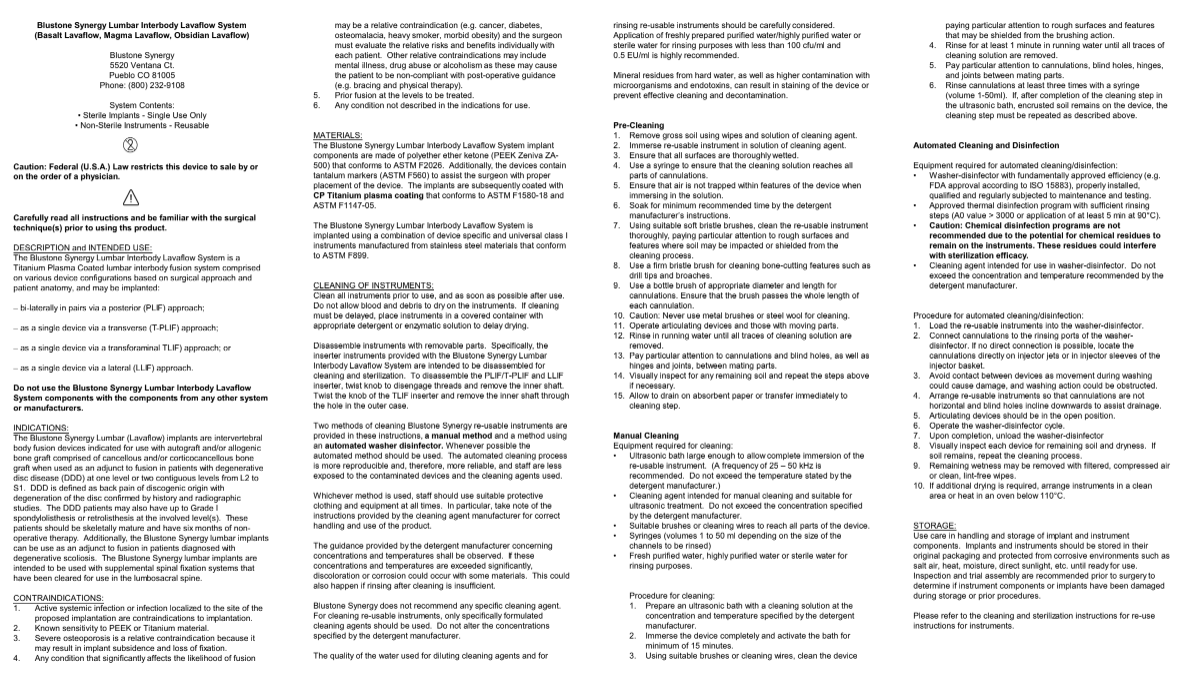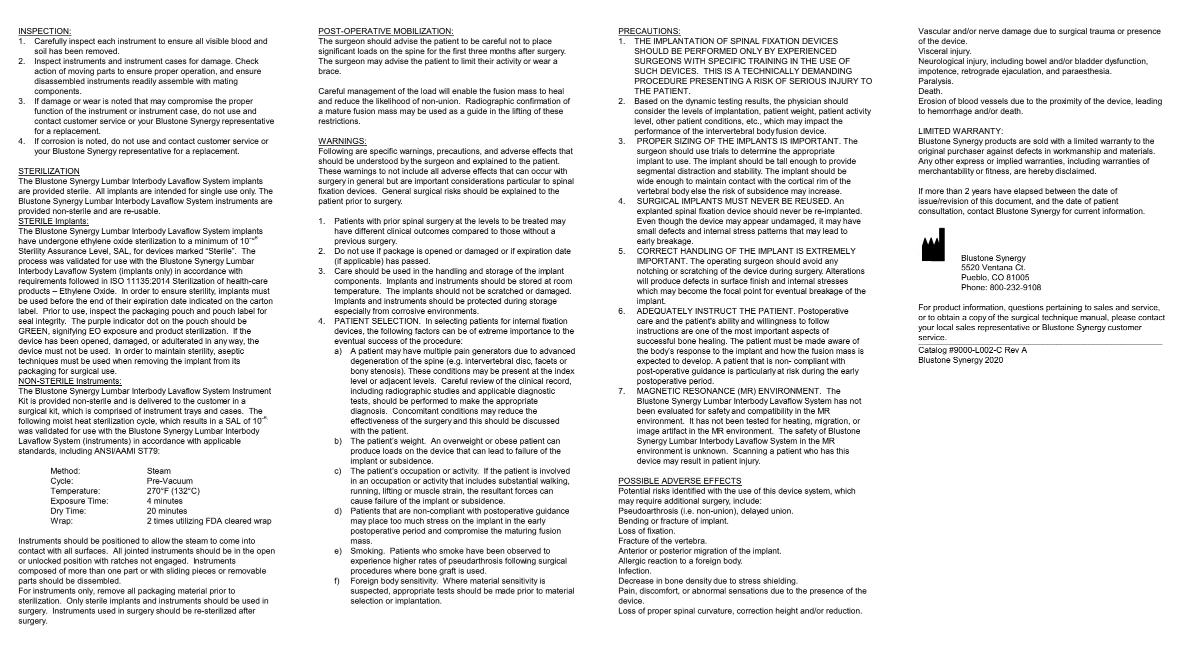- Step 1: Using a transforaminal approach, retract space to access disc space. This is performed with general Neurosurgical instruments and not specific to Blustone Synergy instrumentation or implants.
- Step 2: Prepare disc space. Use pituitaries and rongeurs to remove disc material and bony ingrowth to allow access and decompression of nerve roots and spinal cord. Not specific to instrumentation provided by Blustone Synergy.. Instrumentation for removal of disc and accessing nerve roots provided in general neurosurgical or orthopedic instrumentation sets.
- Step 3: Once the disc space has been prepared, connect the Silicone wrapped T-handle via the ¼” quick-connect to the smallest spreader. You should hear an audible click ensuring the instruments are connected. Pull repeatedly against the two to make sure a good connection is made. Insert the first Blustone Synergy spreader into the disc space. Take care to guard the exiting nerve roots and spinal dura. The surgeon may use dura or nerve root retractors from the general neurosurgical or orthopedic trays the hospital possesses to protect these structures. Insert the spreader with the length parallel the endplates. Start with the smallest spreader. Once the spreader is inside the disc space and at the depth the surgeon desires(this can be checked with fluoroscopy for verification), rotate the spreader. To remove the spreader, rotate it back to its initial position with the widest portion parallel to the endplates, and pull straight out. Take care upon removal of the spreader not to damage the nerve roots and spinal dura. The surgeon may proceed until the desired size is reached. Take care not to over-distract the disc space. This can possibly damage exiting nerve roots.
- Step 4: After the spreaders are used, disc may be cleaned out and endplates cut with the shaver or other neurosurgical instrumentation. If the shaver is used, connect the Silicone wrapped T-handle via the ¼” quick-connect to the smallest shaver. You should hear an audible click ensuring the instruments are connected. Pull repeatedly against the two to make sure a good connection is made. Insert the first Blustone Synergy shaver into the disc space. Take care to guard the exiting nerve roots and spinal dura. The surgeon may use dura or nerve root retractors from the general neurosurgical or orthopedic trays the hospital possesses to protect these structures. Insert the shaver with the length parallel to the endplates. Start with the smallest shaver first. Once the shaver is inside the disc space and at the depth the surgeon wants it(this can be checked with fluoroscopy for verification), rotate the shaver. To remove the shaver, rotate it back to its insertion position with the widest portion parallel to the endplates and pull straight out. Take care upon removal of the shaver not to damage the nerve roots and spinal dura. The surgeon may proceed until the desired size is reached. Take care not to use an oversized shaver in the disc space. This can possibly damage the endplates and cause a weakened area in the intervertebral space. Notate the depth and height of the shaver and pre-surgical planning images to determine the appropriate height, depth and lordosis of the device to be implanted. Proceed with cleaning out of any remaining disc inside the disc space with appropriate curettes, pituitaries, etc..
- Step 5: The surgeon selects the desired implant. The implant is packed with autograft and/or allogenic bone graft comprised of cancellous and/or corticocancellous bone graft. The implant is carefully threaded onto the inserter, care as to avoid any cross-threading and possible difficulty with removal later. The implant will be inserted with the concave side of the implant facing the dura. This will insure final position of the implant is lordotic(taller at anterior side). Nerve roots and dura are retracted and the implant is placed into the intervertebral space. Final position should be with the graft windows facing the endplates to allow fusion across the intervertebral space. Before releasing the implant from the inserter, perform a final check that the tantalum beads are within the vertebral body boundaries and the implant is in the position desired by the Surgeon. Unscrew the thread at the top of the inserter and carefully remove the inserter pulling straight out as to avoid the neural structures. The implant can be tamped into final position with the pusher instrument if so required. Pack bone around the implant as desired.



